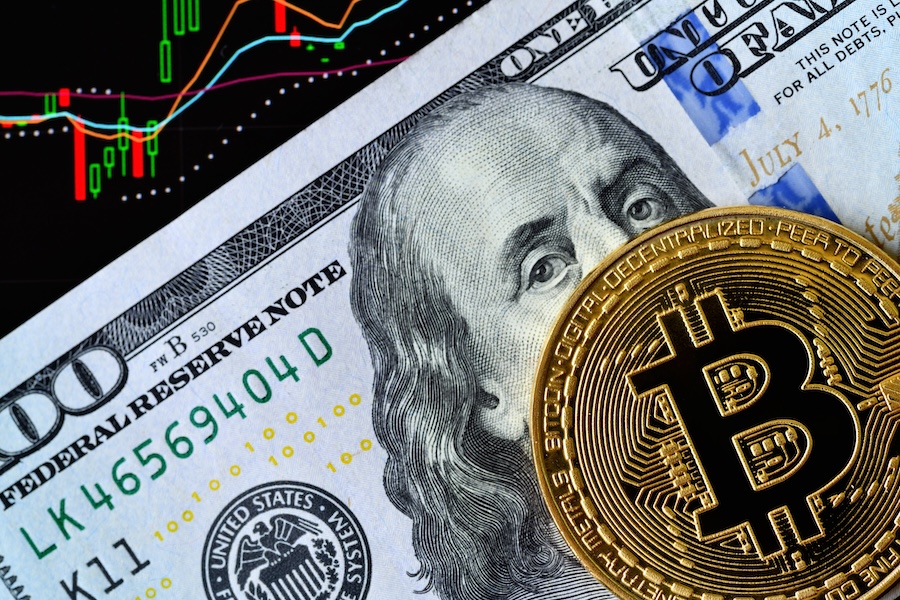A lack of government policy around emerging digital technologies such as blockchain could see New Zealand lose billions of dollars in potential GDP to foreign markets, according to industry leaders who met with MPs at Parliament earlier this month.
Experts say the development of a regulatory framework could address significant barriers to growth for the country’s primary sector producers, including supply chain inefficiencies, verification of product origin and the ability to prove environmental and ethical credentials in overseas markets – with the technology having the potential to become one of New Zealand’s largest export industries within five years.
Blockchain is an emerging technology that acts as a secure digital record book. Instead of one organisation holding all the information, it stores identical copies of data across thousands of computers worldwide, making it virtually impossible to tamper with.
It can be used to track and verify the movement of goods through supply chains, improving the traceability of New Zealand’s agricultural and horticultural exports such as meat, dairy, wine, kiwifruit and Manuka honey.
In the financial sector, it can reduce transaction costs and speed up payments between businesses and consumers. It can also underpin digital identity systems, manage health records, support carbon credit trading and enable smart contracts that automatically execute trade or logistics agreements when pre-set conditions are met.
The newly formed Parliamentary Digital Assets Working Group will meet ministers and regulators on October 14 and 15 to improve government understanding of blockchain and digital assets.
Trevor Topfer, Executive Director of Blockchain NZ, an organisation made up of representatives from the banking, technology, professional services and academic sectors, says inaction is already costing the country and warns New Zealand is at risk of becoming a technology importer.
“Hong Kong announced its stablecoin framework and pulled in $11.7 billion of investment in a month. Singapore did almost $11 billion last year and Australia expects 200,000 high-paid blockchain jobs by 2030.
“If New Zealand doesn’t move, we’ll end up importing this technology instead of exporting it. The internet is being rebuilt using blockchain, and either we take part or we get left behind,” he says.

Trevor Topfer.
Topfer says blockchain enables transparent, tamper-proof data storage that can transform multiple sectors, from verifying agricultural and horticultural exports, to automating logistics, digital identity and property transactions.
“Imagine being able to trace a Gisborne sheep’s wool from the farm gate through to a premium fashion label in Paris and have that verified instantly. That’s just one of the potential applications blockchain offers New Zealand’s primary producers,” he says.
Topfer says local blockchain firms face uncertainty because government agencies have yet to decide how the technology fits within existing financial rules.
“Offshore, regulators are giving startups and investors the clarity they need to operate and attract capital. Here, the framework is ambiguous and that means we’re losing businesses, talent and tax revenue overseas.
“As an example, most of New Zealand’s $9 billion in annual digital assets trading happens on offshore platforms. That represents significant amounts of money and associated compliance going elsewhere,” he says.
Paul Quickenden, Easy Crypto New Zealand General Manager and member of Blockchain NZ, says that while New Zealand’s digital asset sector is brimming with potential, closer collaboration between industry and government could accelerate its growth.
He says the introduction of a New Zealand currency-backed stablecoin could help strengthen monetary sovereignty, improve payment efficiency for exporters and reduce reliance on offshore platforms.
“New Zealand has a real opportunity to set a global benchmark for how emerging technologies are safely and responsibly integrated into the financial system.
“By working together, we can establish a clear taxonomy that defines how different types of digital assets such as stablecoins, NFTs and tokenised property are classified and regulated. “We can also provide clarity for licensed advisers to confidently guide clients, and future-proof our legislation to support innovation around tokenisation of real-world assets like property and commodities,” he says.
Topfer says that a lack of clear ownership within government is stalling progress and the Digital Assets Working Group could play a critical role in coordinating between agencies such as MBIE, Treasury, the Reserve Bank and FMA which currently overlap responsibilities.

Paul Quickenden.
“At the moment, responsibility is fragmented across Commerce, Treasury and Agriculture with no single authority capable of overseeing digital assets holistically. We need a coordinator who sits across all these departments and looks at it through a digital asset lens. Without that, we’re just spinning our wheels.”
Topfer believes New Zealand is well positioned to lead globally if it acts quickly, saying the country has the credibility, talent and governance framework needed to become a trusted hub for emerging technologies.
He says New Zealand could brand itself as the ‘safe and compliant’ home of blockchain innovation, much like it once positioned itself to the world with its 100% Pure tourism campaign.
“We already have a thriving tech sector and world-class developers, but we need to send a clear message that we’re open for business – if you want your blockchain product to carry a reputation for trust and transparency, you come to New Zealand.”
The working group’s inaugural meeting this week will aim to lay the groundwork for cross-party collaboration, ensuring future policy survives election cycles.




